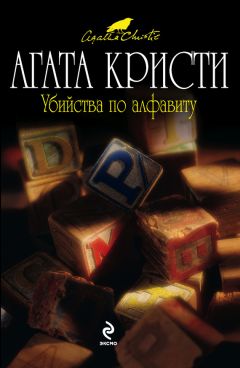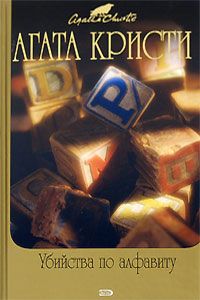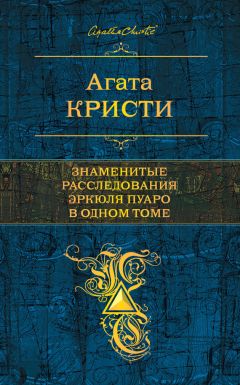Agatha Christie - Английский язык с Агатой Кристи. Убийства по алфавиту
"Eh (простите: «э»)?" Poirot looked at her inquiringly (Пуаро вопросительно посмотрел на нее).
"What you've been saying (то, что вы говорите). It's just words (это только слова). It doesn't mean anything (это ничего не значит)."
assumption [ǝˈsʌmpʃ(ǝ)n], jigsaw [ˈdʒɪɡsɔ:], apparently [ǝˈpærǝntlɪ]
"I make the assumption that one — or possibly all of you — knows something that they do not know they know."
"Sooner or later, by reason of your association with one another, something will come to light, will take on a significance as yet undreamed of. It is like the jigsaw puzzle — each of you may have a piece apparently without meaning, but which when reunited may show a definite portion of the picture as a whole."
"Words!" said Megan Barnard.
"Eh?" Poirot looked at her inquiringly.
"What you've been saying. It's just words. It doesn't mean anything."
She spoke with that kind of desperate dark intensity (она говорила с какой-то отчаянной глубокой напряженностью: «с тем типом отчаянной темной напряженности») that I had come to associate with her personality (которую я стал ассоциировать с ее личностью).
"Words, mademoiselle (слова, мадемуазель), are only the outer clothing of ideas (являются только внешним покровом идей)."
""Well (ну), I think (я думаю) it's sense," said Mary Drower (в этом есть смысл). "I do really, miss (я действительно /так думаю/, мисс). It's often (это часто) when you're talking over things (когда вы поговорите о чем-то: «о вещах») that you seem to see your way clear (вам кажется, что все становится ясным: «что вам кажется, что вы видите ваш путь ясным»). Your mind gets made up for you sometimes (ваш ум иногда перенастраивается; to make up — составлять; устраивать; гримировать) without your knowing (а вы не замечаете: «без вашего знания») how it's happened (как это случилось). Talking leads to a lot of things one way or another (разговор ведет ко многим вещам так или иначе: «тем или иным путем»)."
"If 'least said is soonest mended' (если словами делу не поможешь: «если меньше сказано, скорее починено»), it's the converse we want here," said Franklin Clarke (здесь нам нужна беседа: «это беседа, что мы здесь хотим»).
desperate [ˈdespɪrɪt], personality [ˌpǝ:sǝˈnælɪtɪ], least [li:st]
She spoke with that kind of desperate dark intensity that I had come to associate with her personality.
"Words, mademoiselle, are only the outer clothing of ideas."
"Well, I think it's sense," said Mary Drower. "I do really, miss. It's often when you're talking over things that you seem to see your way clear. Your mind gets made up for you sometimes without your knowing how it's happened. Talking leads to a lot of things one way or another."
"If 'least said is soonest mended,' it's the converse we want here," said Franklin Clarke.
"What do you say, Mr. Fraser (что вы скажете, мистер Фрейзер)?"
"I rather doubt the practical applicability (я весьма сомневаюсь в практическом применении; to apply — обращаться с просьбой письменно; применять) of what you say, M. Poirot (того, что вы говорите, мсье Пуаро)."
"What do you think, Thora (что вы думаете, Тора)?" asked Clarke.
"I think the principle of talking things over is always sound (я думаю, принцип поговорить о вещах всегда логичен: «/звучит/ здраво»; sound — здоровый; логичный)."
"Suppose," suggested Poirot (предположим, — предложил Пуаро), "that you all go over your own remembrances of the time (что вы все пройдете через = переберете ваши собственные воспоминания времени; to go over — внимательно изучать, тщательно рассматривать; проводить осмотр) preceding the murder (предшествующего убийству). Perhaps you'll start, Mr. Clarke (может быть, вы начнете, мистер Кларк)."
applicability [ˌæplɪkǝˈbɪlɪtɪ], sound [saʋnd], preceding [prɪˈsi:dɪŋ]
"What do you say, Mr. Fraser?"
"I rather doubt the practical applicability of what you say, M. Poirot."
"What do you think, Thora?" asked Clarke.
"I think the principle of talking things over is always sound."
"Suppose," suggested Poirot, "that you all go over your own remembrances of the time preceding the murder. Perhaps you'll start, Mr. Clarke."
"Let me see (дайте мне подумать), on the morning of the day Car was killed (в утро дня, /когда/ Кар был убит) I went off sailing (я ушел в плаванье /под парусом/). Caught eight mackerel (поймал восемь макрелей; to catch). Lovely out there on the bay (чудесно там в заливе). Lunch at home (ленч дома). Irish stew[33] (ирладское рагу), I remember (/как/ я помню). Slept in the hammock (спал в гамаке). Tea (чай). Wrote some letters (написал несколько писем), missed the post (пропустил почтальона: «почту»), and drove into Paignton to post them (и поехал в Пейнтон отправить их; to drive). Then dinner and (затем обед и) — I'm not ashamed to say it (я не стыжусь сказать это) — I reread a book of E. Nesbit's[34] (я перечитал книгу Э. Несбит) that I used to love as a kid (которую я, бывало, любил, когда /был/ ребенком). Then the telephone rang (затем позвонил телефон) —"
"No further (не продолжайте: «не далее»). Now reflect, Mr. Clarke (теперь подумайте, мистер Кларк), did you meet anyone on your way down to the sea in the morning (встретили вы кого-нибудь на вашем пути вниз к морю тем утром)?"
mackerel [ˈmækrǝl], stew [stju:], hammock [ˈhæmǝk]
"Let me see, on the morning of the day Car was killed I went off sailing. Caught eight mackerel. Lovely out there on the bay. Lunch at home. Irish stew, I remember. Slept in the hammock. Tea. Wrote some letters, missed the post, and drove into Paignton to post them. Then dinner and — I'm not ashamed to say it — I reread a book of E. Nesbit's that I used to love as a kid. Then the telephone rang —"
"No further. Now reflect, Mr. Clarke, did you meet anyone on your way down to the sea in the morning?"
"Lots of people (множество людей)."
"Can you remember anything about them (вы можете вспомнить что-нибудь о них)?"
"Not a damned thing now (теперь абсолютно ничего: «теперь ни одной проклятой вещи»)."
"Sure (уверены)?"
"Well (так) — let's see (давайте посмотрим) — I remember a remarkably fat woman (я помню примечательно полную женщину; to remark) — she wore a striped silk dress (на ней было надето полосатое шелковое платье) and I wondered why (и я удивился, зачем) — had a couple of kids with her (имела пару детей с ней) — two young men with a fox terrier on the beach (два молодых человека с фокс-терьером на пляже) throwing stones for it (кидающих для него камни) — Oh yes (о да), a girl with yellow hair (девушка-блондинка: «с желтыми волосами») squeaking (взвизгивающая) as she bathed (когда она купалась) — funny how things come back (забавно, как вещи возвращаются) — like a photograph developing (как проявляющаяся фотография)."
striped [straɪpt], terrier [ˈterɪǝ], squeaking [ˈskwi:kɪŋ]
"Lots of people."
"Can you remember anything about them?"
"Not a damned thing now."
"Sure?"
"Well — let's see — I remember a remarkably fat woman — she wore a striped silk dress and I wondered why — had a couple of kids with her — two young men with a fox terrier on the beach throwing stones for it — Oh yes, a girl with yellow hair squeaking as she bathed — funny how things come back — like a photograph developing."
"You are a good subject (вы — хороший предмет /для беседы/; subject — тема, предмет). Now later in the day (теперь позднее /текущим/ днем) — the garden (сад) — going to the post (поездка на почту) —"




